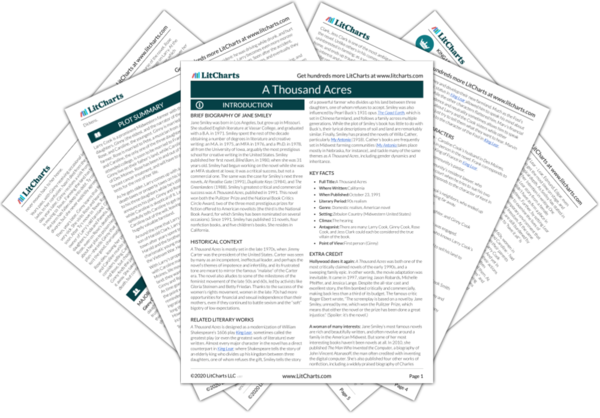Caroline was sure that she could crack Larry’s “code.” Caroline’s behavior suggests that she was genuinely interested in becoming closer with Larry, whereas her older siblings were more likely to avoid thinking too closely about him at all—suggesting either a lack of love (as would be suggested in
King Lear) or a wariness based in past trauma.
